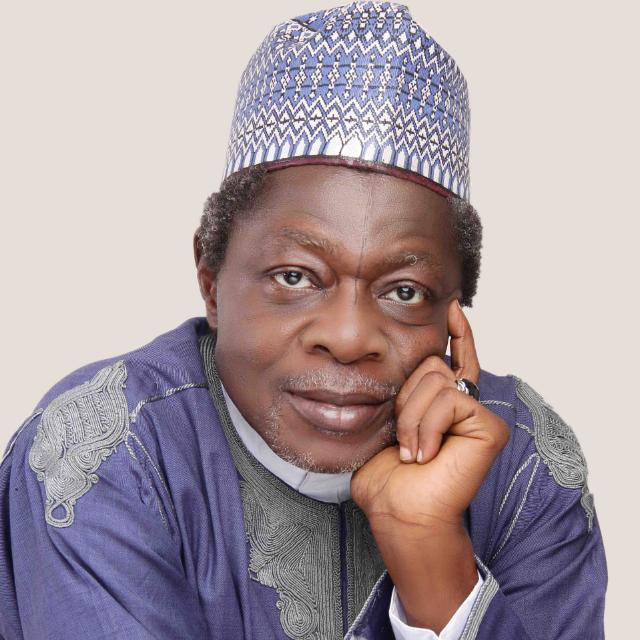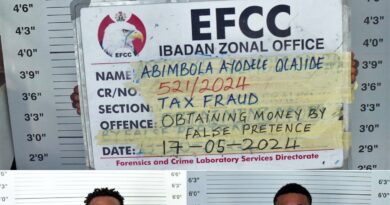How not to move the nation forward, By Dan Agbese
Email: [email protected]
SMS: 08055001912
I took a walk through my columns for this newspaper the other day and found this. Sometime in 2016, President Obasanjo spoke on the health of the two political parties. He said: “APC is weak; PDP is dead.”
The leaders of the two parties could not have agreed with the former president. But as I look at what is happening therein, it bothers me that with more than 21 years of democracy under our belt, our political party system still stands on nothing and the politicians are flailing, catching at anything that enhances their visibility as the big masquerades in the market place. In my reaction to Obasanjo’s diagnosis of the health of the two parties, I suggested we should undertake an honest interrogation of the state of our democracy and its future in the hands of the two parties. One thing sticks out like a sore thumb: both parties have failed, quite remarkably, to transform themselves into political parties with the right ideological bells and whistles.
PDP, the older of the two parties, was for 16 years our unshakeable political behemoth; the largest political party in Africa. It was set, according to its then national secretary, Vincent Ogbulafor, to rule for 60 years in the first instance. It didn’t. APC replaced it as the ruling and therefore, dominant political party, in 2015.
Both parties owed their birth to political exigencies, and, therefore, had unremarkable births as political parties. The late Chief Solomon Lar’s group of 18 and later 36 made up of politicians in the second republic, was formed as a pressure group to dissuade General Abacha from going ahead with his plan to succeed himself as a civilian president.
Those illustrious men were not concerned with the niceties of party politics, such as a party’s ideology and philosophy and what it stands for in the context of its objectives of power and its concept of the imperatives of social and economic development at that time. Their singular political objective was to force the military to return the country to civil rule.
But circumstances later persuaded Lar and his men to register their group as a political party. Their new party, the Peoples Democratic Party, PDP, attracted a motley crowd of men and women who came under the umbrella to seek their political fortunes in a new democratic Nigeria. This motley crowd never gave some serious thoughts to the ideology of their party. We did not know what it stood for; we still do not know what is stands for. In the times before these in our country, people joined political parties because they found their ideology and philosophy attractive and wished to subscribe to them. The absence of a philosophical or ideological underpinning means that the party is committed to nothing and offers us no system of economic and social development we can ride to a better future.
APC came into being in almost similar circumstances. It is a remarkable collection of other parties with the singular objective of forcing the sun to set on PDP. Its members had nothing really in common other than to seek new accommodation in a new party and remain relevant in our national politics. The party did not bother with an ideology. We did not know what it stood for; we still do not know that it stands for.
In the classic definition of a political party, the claim by each party as a political party is tenuous at best and false in its entirety. Democracy is political party-driven. How much do the parties drive our democracy along the desired narrow path of political salvation? The parties cannot properly drive our democracy without transforming themselves from motley crowds into formidable institutions of democracy.
The institutionalising of democracy must flow from the institutionalising of our political parties. If we continue to treat the political parties as nothing more than the means to grab, retain and exercise political power, I doubt that our democracy would do better than move forwards in fits. The statutory responsibilities of political parties go far beyond winning elections. They are the guardians of the best practices in democracy. Or they should be. They can make or mar democracy – democratically.
PDP is bestirring itself. It has a new national leadership headed by Dr Iyorchia Ayu, former senate president. At the inception of the Buhari administration, it haemorrhaged badly. It is not bleeding that badly any more.
Is the APC weak? Yes, more now than when Obasanjo diagnosed its ailment. There is no denying that the party is in disarray. It has not had a national leadership since Adams Oshiomhole was eased out and replaced with governor Mala Buni’s caretake committee. The committee was initially billed to last for three months but it has lasted for ever. The party today faces the critical challenge of unravelling. The centres of its power are beginning to pull in different directions. This cannot but weaken the party. If a ruling party cannot get its basic acts together in accordance with its constitution, it would be naïve to expect much from it. APC lost the chance to transform itself into a formidable political party. One good reason it is now swaying in the wind, unable to reconcile its members who feel injured and are disenchanted with the lack of democracy in the party.
The party is beset with more problems than it can handle. I do not think it has any reasons to be proud of the performances of it government at the centre. The party made promises that it finds itself unable to keep. It is haunted by its unkept promises such as restructuring, state police and local government autonomy. As we enter the 2023 election season, the party must be worried about the account it must render to the people that gave it the thumbs-up in 2015 and 2019. There is always a pay-back time.
The problems our two leading political parties face are not entirely of their own making. They are rooted in the continued refusal of the party leaders to institute a party system that constitutes a strong pillar of our democracy; one capable of driving our national development and managing our diversities towards making a strong and united nation out of our beautiful rainbow collection of tribes. That both parties still have problems with power rotation broadly between the north and the south tells you that what matters to them is neither the emergence of a new nation nor our national unity. When power itself matters more than the ends to which it could be used for the greater good of the greater number of citizens, there is real wahala.
What grates on the mind here is that for the first time since power rotation or power shift became the new national challenge in the second republic, we have practised it four times under the current political dispensation: in 1999, power shifted from the north to the south; in 2007, power shifted from the south to the north; in 2011, power shifted from the north to the south and in 2015, power shifted from the south to the north. I thought an important path to our national unity has at last been cut through the jungle of our generally dishonest approach to managing our affairs.
Now, the two parties are rolling back the little gains we have made. They are no longer committed to this sane process of managing our diversities and power distribution. They advance the puerile argument that power shift is not in the constitution. The national constitution can only provide broad guidelines on the social contract. It leaves the management to the political leaders. Not everything we do is in the constitution. The zonal system by which the parties are sharing their national offices is not in the constitution. But it serves our peculiar purposes as a formula for the diffusion of power. Political parties institute policies and programmes they believe can move the nation forward in its economic, social and political development in keeping with best practices in a federated state. These policies and programmes are not in the constitution but again they serve the ends of instituting the government of the people by the people. It is in bad faith now for the parties to resort to doubtful constitutional legalism to scuttle this arrangement. It is an excuse for abandoning the path of political development anchored on a power sharing system that moderates our divisive politics. The parties should move us forward and not draw us back.




